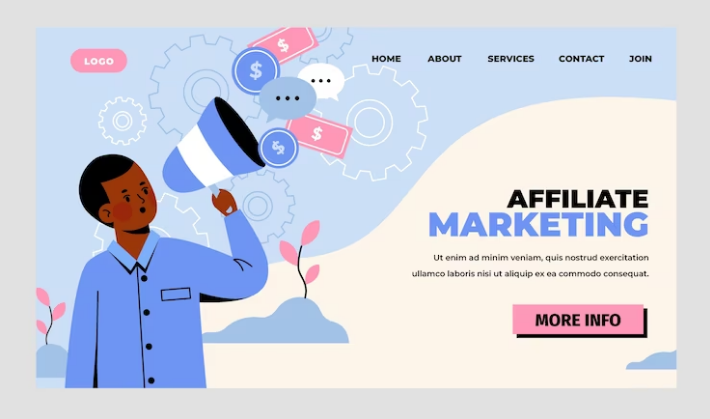
In the realm of online monetization, Google AdSense stands as a beacon for bloggers and website owners seeking to turn their passion into profit. However, achieving success with AdSense requires more than just signing up; it demands careful preparation and strategic optimization of your blog to ensure compliance with Google's policies and maximize revenue potential. In this comprehensive guide, we'll delve into the essential steps bloggers must take to prepare their blogs before applying for Google AdSense.
-
Create High-Quality Content: The foundation of a successful AdSense strategy is high-quality content. Before applying, ensure that your blog features original, valuable, and engaging content that resonates with your target audience. Focus on providing solutions to their problems, answering their questions, or entertaining them with compelling stories. Consistently publishing fresh content not only attracts visitors but also keeps them coming back for more, ultimately increasing your ad revenue potential.
-
Optimize Website Design and Navigation: A well-designed and user-friendly website enhances the user experience and encourages visitors to stay longer, which can lead to higher ad impressions and clicks. Prioritize a clean and intuitive layout, easy navigation, fast loading times, and mobile responsiveness. Ensure that your website is visually appealing and presents your content in an organized manner, making it easy for users to find what they're looking for and engage with your content.
-
Focus on SEO: Search engine optimization (SEO) plays a crucial role in driving organic traffic to your blog and improving its visibility in search engine results pages (SERPs). Conduct keyword research to identify relevant keywords and phrases related to your niche, and optimize your blog posts with these keywords to improve their chances of ranking higher in search results. Additionally, optimize meta titles, descriptions, headings, and image alt text to make your content more discoverable by search engines.
-
Create Essential Pages: Before applying for AdSense, ensure that your blog includes essential pages that provide transparency and information to your visitors. These pages typically include:
- About Us: Introduce yourself or your brand, share your story, and explain the purpose of your blog.
- Contact Us: Provide contact information, such as an email address or contact form, to enable visitors to reach out to you with inquiries or feedback.
- Privacy Policy: Clearly outline how you collect, use, and protect visitor data on your blog, in compliance with privacy laws and regulations.
- Terms of Service: Define the terms and conditions that govern the use of your blog, including copyright policies, disclaimers, and user obligations.
-
Ensure Compliance with AdSense Policies: Google has strict policies regarding the types of content and websites eligible for AdSense. Before applying, review Google's AdSense Program Policies and ensure that your blog complies with all guidelines, including:
- Prohibited content: Avoid publishing content related to illegal activities, adult material, copyrighted material, violence, hate speech, and deceptive practices.
- Quality guidelines: Provide original, valuable content that adds value to users, avoid deceptive tactics to manipulate ad placement or clicks, and maintain a user-friendly website experience.
- Traffic sources: Avoid artificially inflating traffic or engaging in practices that violate Google's policies, such as purchasing traffic or participating in click exchanges.
-
Build Organic Traffic: While Google AdSense can generate revenue through ad impressions and clicks, having a steady stream of organic traffic is essential for maximizing earnings. Invest in strategies to increase your blog's visibility and attract more visitors, such as:
- Content promotion: Share your blog posts on social media, participate in online communities and forums, and collaborate with other bloggers or influencers in your niche.
- Guest blogging: Contribute guest posts to reputable websites in your niche to reach a wider audience and gain backlinks to your blog.
- SEO optimization: Continuously optimize your content for search engines to improve its ranking and attract organic traffic from Google and other search engines.
-
Prepare for Monetization: Before applying for AdSense, prepare your blog for monetization by strategically placing ad units and optimizing ad placements for maximum visibility and engagement. Consider factors such as:
- Ad placement: Experiment with different ad placements, such as above-the-fold, within content, and in sidebar or footer sections, to determine the most effective placement for your blog layout and user experience.
- Ad formats: Explore various ad formats offered by AdSense, including display ads, native ads, and matched content ads, to find the ones that perform best on your blog.
- Ad customization: Customize the appearance and styling of ad units to match your blog's design and branding, while ensuring that ads remain clearly distinguishable from your content.
-
Review and Improve User Experience: A positive user experience is essential for retaining visitors and encouraging them to interact with your content and ads. Continuously monitor and analyze user behavior on your blog, and make improvements to enhance the user experience, such as:
- Optimizing page speed: Improve loading times by optimizing images, minimizing server response times, and leveraging browser caching.
- Streamlining navigation: Simplify navigation by organizing content into categories and using clear menus and navigation links to help users find their way around your blog.
- Testing usability: Conduct usability tests to identify any issues or friction points in the user journey, and make adjustments to improve accessibility and usability.
How To Apply For Google Adsense

Signing up for Google AdSense is a straightforward process:
-
Visit the AdSense Website: Go to the Google AdSense website (https://www.google.com/adsense/) and click on the "Sign up now" button.
-
Enter Your Website URL: Provide the URL of the website or YouTube channel where you intend to display ads.
-
Create or Sign in with Google Account: If you don't have a Google account, you'll need to create one. Otherwise, sign in with your existing Google account.
-
Enter Your Information: Fill out the required information, including your name, address, and contact details.
-
Verify Your Phone Number: Google may require you to verify your phone number for security purposes.
-
Agree to AdSense Terms and Conditions: Review and accept the AdSense program policies and terms.
-
Add Ad Code to Your Website or YouTube Channel: After your application is approved, you'll receive an email with instructions on how to generate ad code. Place this code on your website or YouTube channel to start displaying ads.
-
Wait for Approval: Google will review your application, which typically takes a few days. Once approved, you can start earning revenue from ad clicks and impressions on your content.
In conclusion, preparing your blog for Google AdSense requires careful planning, optimization, and adherence to Google's policies. By focusing on creating high-quality content, optimizing your website for search engines and user experience, and strategically preparing for monetization, you can increase your chances of getting approved for AdSense and maximize your revenue potential. Remember to continuously monitor and refine your blog to adapt to changes in the digital landscape and stay ahead of the competition.













































